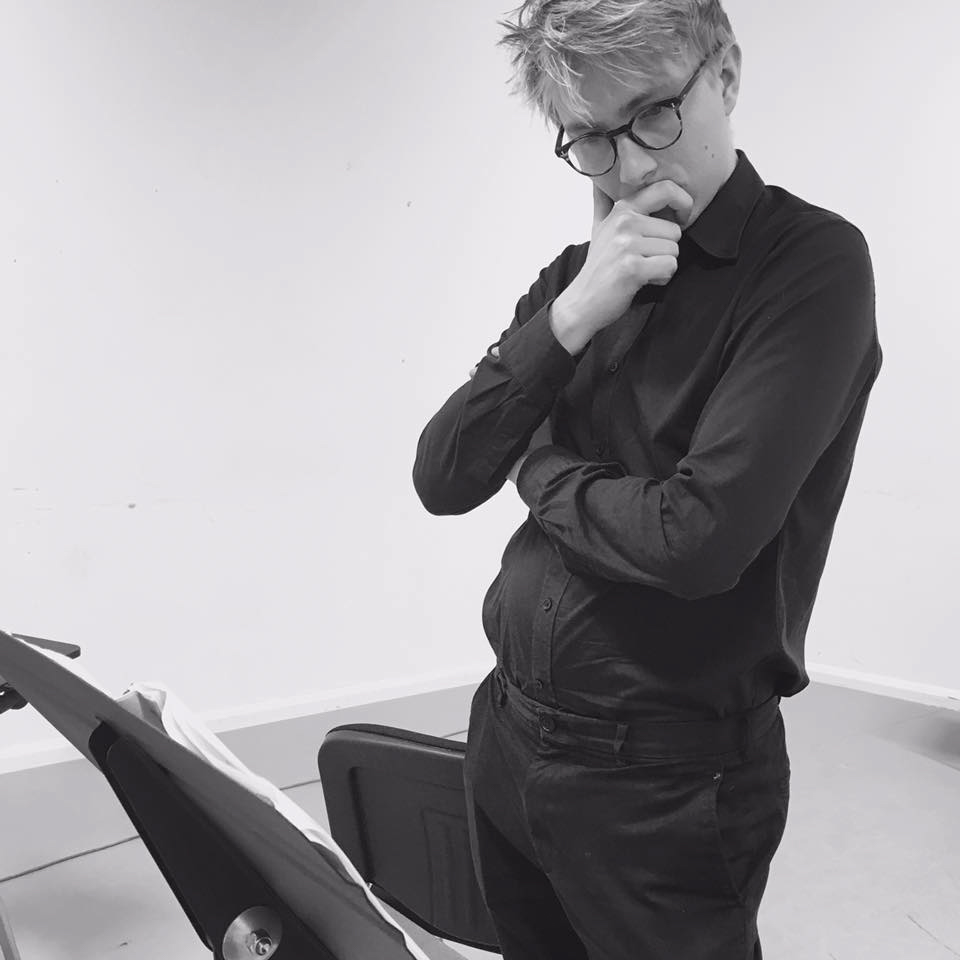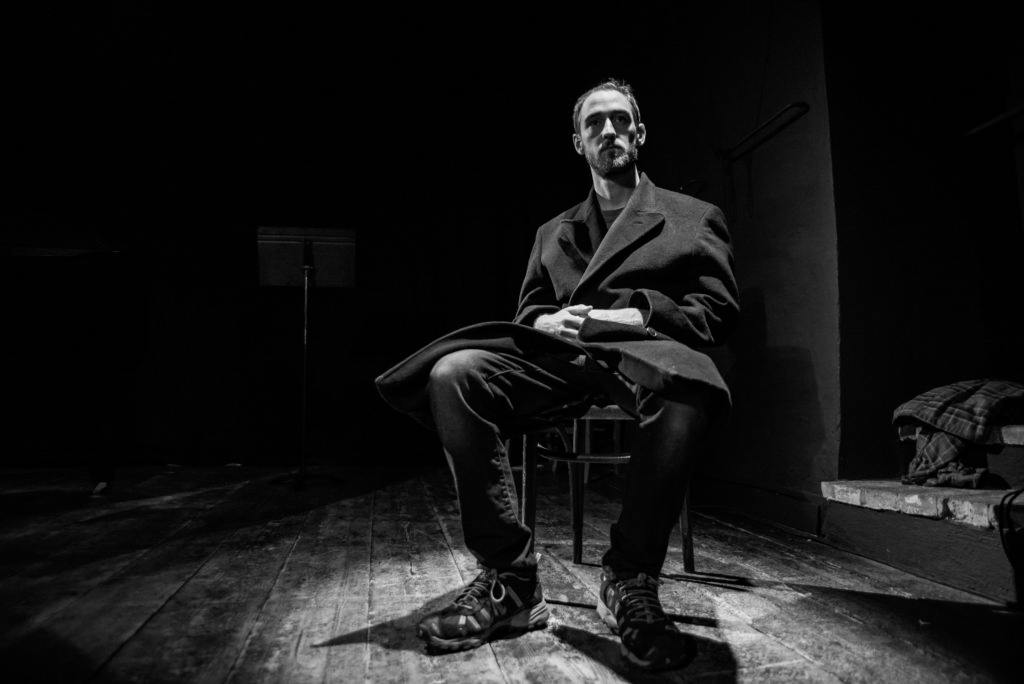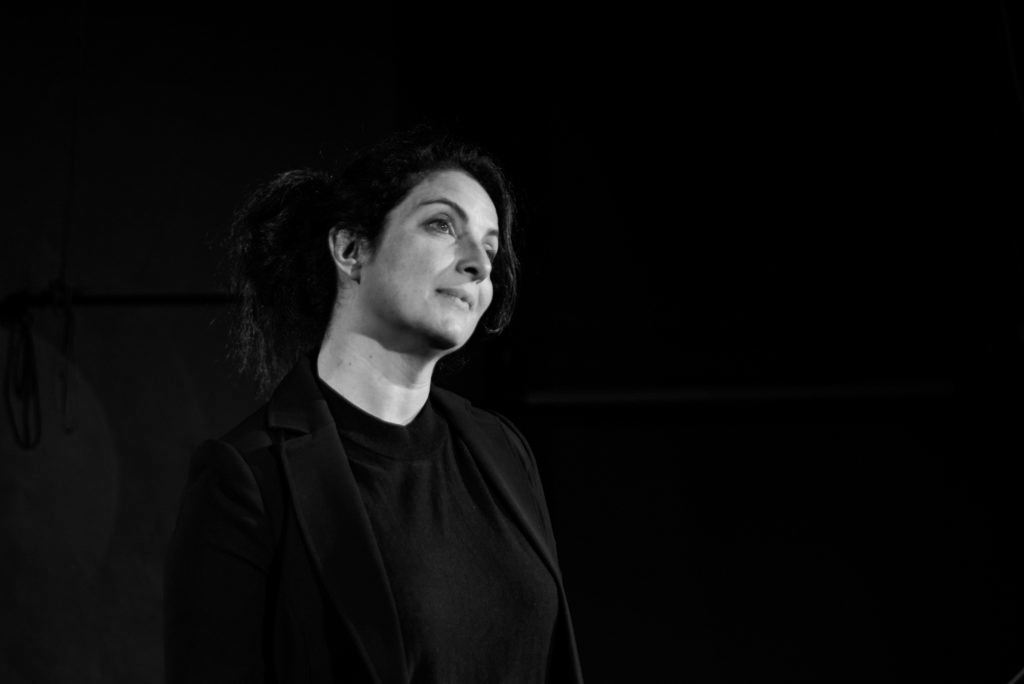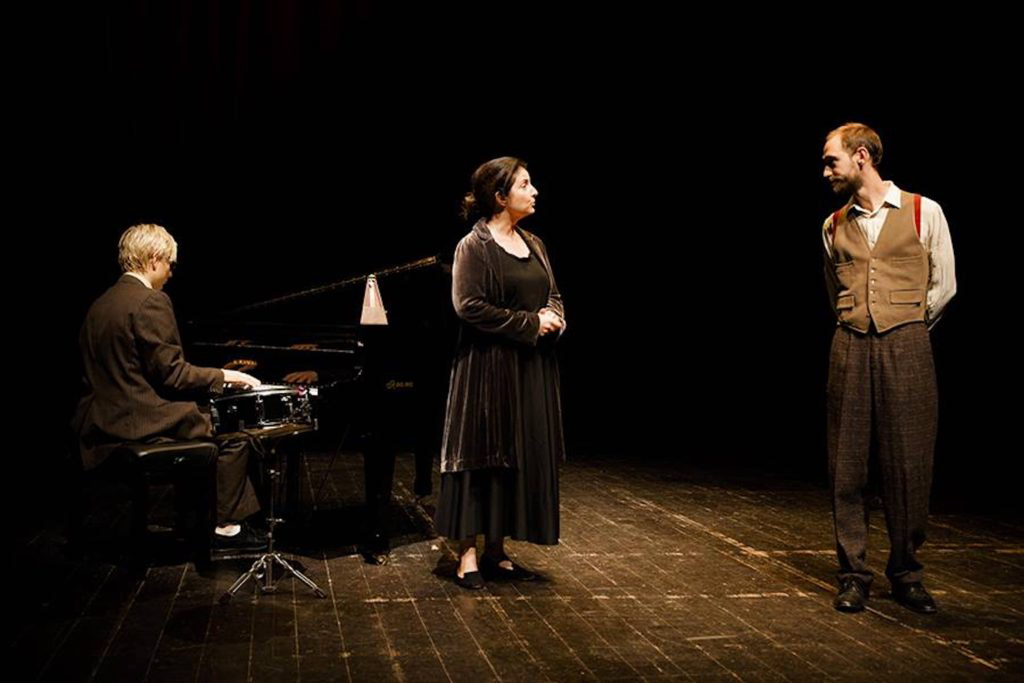We sat down with Danny Wallington, Deborah Wastell and Joseph Skelton of The Conductor to have a chat about their upcoming show, opening on the 26th of March.
Describe the show in 3 words.
Danny: Exploration, Persistence, Fellowship.
Deborah: Words and Music
Joseph: People making hope
The show has been on quite a journey – how did it all start?
Danny: On my birthday back in 2015, my Dad bought me Sarah Quigley’s book – ‘The Conductor’and the CD of Shostakovich’s Leningrad Symphony. The story helped with active listening to the music, and I formed the idea about dramatising the programme notes to classical pieces in the hope it would encourage people to listen to the music. With this in mind, I reached out to my theatre friends.
Deborah: I joined The Conductor in mid-February of 2016. Danny had worked on it for part
of a project at Music College, and having got Jared and Joe involved when they
needed a female actor to help workshop the script, Danny took to the internet and
found a friend of mine who was lined up to do it, but then was unable to – so she put
me in touch with them. And that was that…. they’re probably still wondering how I
got the idea that they needed me beyond that one day…
Joseph: Danny, the pianist, and I went to school together – we had a band when we were 11
called ‘The Blobsters’. I think Danny rang me because I was the only actor he knew.
The rest is history.

What was the biggest challenge in bringing The Conductor to life?
Danny: With the whole symphony lasting 1hr 30 mins, condensing that to roughly 25 minutes of solo piano music was an exercise in restraint. With many rich themes to choose from, it
was inevitable that I would try to cram as many into the arrangement as possible. Being
pianistic was my main goal, however, we aimed to stick to the score as much as we could.
Shostakovich himself arranged the symphony for chamber musicians and solo piano,
although no such scores could be located.
Deborah: From a personal perspective, the biggest challenge has been differentiating
between the 6 roles I play without ending up with caricatures of people. Particularly
as a couple of them are just a few lines. From a company perspective, the logistics
are probably the thing that stands out. All the spaces we have played have been
very different – large, small, outdoor, stages that were circular, stages that were
square, stages that were shallow and wide, or deep and narrow. We’ve performed it
in the round, with proscenium arches, in black boxes, in thrust…. and that’s not to
mention the different dimensions of pianos… We’ve had on average a few hours to
adapt the show to each of these playing spaces, and I think we’ve managed to pull it
off…
Joseph: There was the incident with the noodles. When the artistic director of a fringe festival
loudly ate noodles in the back of our very quiet show. That was a challenging
moment. And then the men’s club who were playing cards next door came in and
were smashing ice with a rolling pin in the bar at the back. But I’m sure these things
would never have phased Karl Elliasberg.
The show takes place during the Leningrad Blockade, a time of political
turmoil, was it hard to recreate this feeling?
Danny: After watching actual footage of the siege in the film ‘Blockade’, what stuck out the most was the people of Leningrad. Children walked past tanks to school but were still playing.
Adults dug down into the snow for water, but still had conversational faces. Surviving was
getting on with their day to day lives. Interestingly, in terms of the music, we felt that slow, quiet and sometimes beautiful passages from the symphony worked better to give a sense of the endurance. This has everything to do with Shostakovich’s masterful use of melody. Below the proud nationalistic themes are these more sinister, sarcastic harmonies that aren’t always
noticed by all, but it’s impossible not to feel them.
Deborah: I would like to be able to answer that it was difficult to be able to recreate the
feeling of living in a time of political turmoil, but sadly, it was not.
Joseph: Yes, absolutely. We experimented in rehearsal with trying to ‘replicate’ some kind of
genuine emotional response but we found that whatever we tried it came across as
untrue. Because how could we ‘feel’ what this was. So we decided to take it back to
the story, to tell it with simplicity and honesty and not layer too much on top of it to
get in the way. To let the story communicate, and get out of the way of the words.

The Conductor focuses on a group of people going through negative times but
using art to benefit themselves immensely. Do you think the power of art is
still prominent today?
Danny: Over my lifetime, I have definitely benefited from music, the type of art I identify with the most. I think I believe art will always be there if you believe it and want it to be. Be it
through the negative, or to enhance the positive.
Deborah: Yes, I think it is. Art is now more readily accessible than it ever has been before,
that is why it’s so important to use it responsibly. The job of an artist is to convey
ideas and philosophies whilst holding up a mirror to society to show it both its
strengths and flaws. And to hold it accountable for those. Different people classify
different things as “art”, but if you turn on a TV show, whether it’s a one-off feature-length drama starring the great and good of Hollywood or a soap that is in
thousands of living rooms every night, you will be hard pushed to find something that
doesn’t address some issue of importance – even issues that don’t affect the majority
of the population – it’s almost more important to address those and bring them to the attention of everyone. People bond over art, and it makes them think of things from
a different perspective. I think, now more than ever before in my lifetime, that’s so
important.
Joseph: I often ask myself this. It’s so hard to quantify how art changes our lives. But I believe
it does. I believe it deeply… I believe it’s as necessary now as it was then. It’s an
expression of our inner reality. And we will always need to do this otherwise we will
crumple in on ourselves. The same way a flower in a field must express itself. It’s
that insignificant and that powerful.
What’re you hoping for the audience to take away from this politically and
musically driven show?
Danny: I wish more than anything that they will go and listen to the symphony. That’s what the story did for me. And the symphony inspired me so much that I spent the next 3 years
playing it, so I can highly recommend! Try and listen out for the march theme in the first movement, which starts after about 10 minutes. It starts out as an innocent and distant melody over a snare drum pattern. This melody is repeated and continues to grow until it crashes into a twisted, formidable force. It’s a great metaphor for the rise of fascism. Starting quietly in the distance it doesn’t present any concern, but as it gains traction, it soon becomes uncontainable.
Deborah: A little hope. But also a reminder of how dark society can become when we are
not vigilant and proactive. That’s a bit bleak, isn’t it? Maybe stick with the “hope”
rather than the alarm bells of doom! I think in times like ours it’s easy to feel
overwhelmed and impotent in the face of everything. There is so much pain and
suffering in the world, of unimaginable magnitude, so it’s good to be reminded that
everyone can make a difference and give others hope. And it’s important to know
that “this, too, shall pass” it’s not always easy to see that. So yes… I think that is the
main thing I’d like people to take from it – a little faith in humanity and hope for the
future.
Joseph: I would just like them to be touched by the story and to feel the power within them to
transcend dark times.

What’s next for you?
Danny: I’m starting a postgrad degree at Trinity College of Music in September. My main focus this year will be jazz style improvisation and studying the music of Ahmad Jamal, Red
Garland and John Hicks.
Deborah: About a year ago I co-founded the “Female Edit” – a collective of female
creatives, and we’ve been working on various bits and pieces of feminist theatre, so
I’ll be continuing with that, that’s exciting to be working on. But you know… I can
probably fit Kathryn Bigelow in if she calls, though…
Joseph: For me, I’m working on writing a new play. It’s set contemporaneously but is about
the clash between far left and far right politics today. It’s also just a story about a
mother and a son and their journey to understanding each other. So it’s about the
same things in many ways, just eighty years on, and set in Derbyshire!

The Conductor runs from 26th March – 13th of April with tickets from £9.50; you can find out more information, and book tickets here.